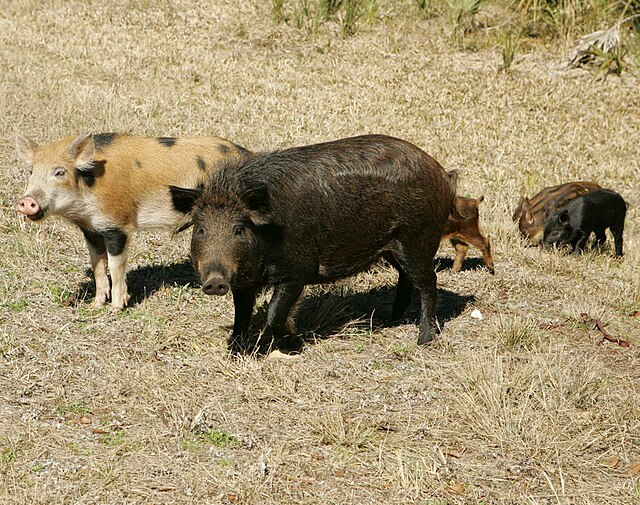In recent weeks, an invasive species of feral pigs known as “super pigs” that inhabit Canada now threaten to cross the border into the Northern region of the U.S. Super pigs are considered to be one of the most dangerous invasive species due to their size and damage to the environment. Super pigs are known to destroy farmland and wildlife for food, attack humans and animals, and spread diseases. The population of super pigs is also incredibly difficult to control as they reproduce rapidly and in large numbers. While minor invasions into states such as Minnesota and Montana have been successfully eradicated in the past, a possible widespread invasion from Canada can pose a serious threat to the US and its agriculture.
Farms, especially hog farms, in North America have struggled with super pigs for decades. Super pigs are destructive towards farms as they are known for breaking apart soil and farmland in order to find food. They are an issue in regions of wildlife as their vast population and aggression can disrupt food chains in the ecosystems they inhabit. On top of this, super pigs can also spread diseases such as African swine fever that can harm domesticated pigs and drastically decrease populations on pig farms. While the diseases they spread are not transmitted to humans, super pigs pose a threat to humans as most can reach 500-600 pounds in weight which enables them to cause physical harm to humans. Hunting super pigs has become discouraged as it has shown to have no effect on the population due to their widespread and frequent reproduction. It has also been discovered that super pigs begin to adapt to hunting patterns and begin to live nocturnally, increasing the difficulty of hunting. The US is bracing itself for the invasion and is planning to provide aid to farms that are threatened.








